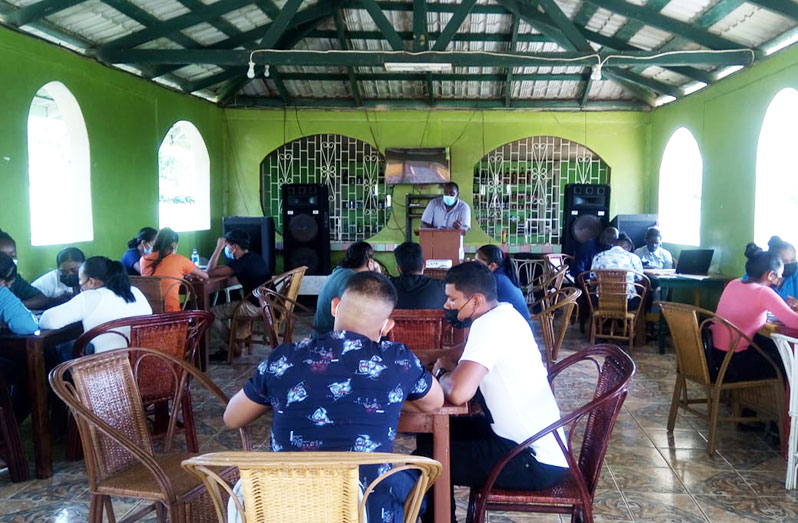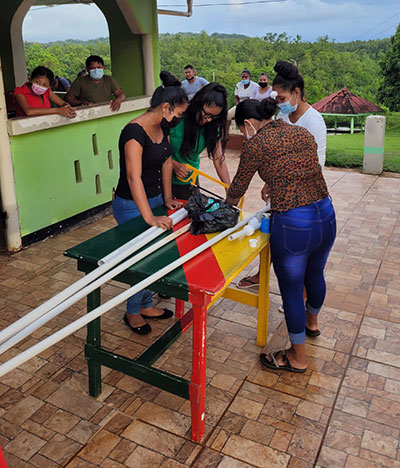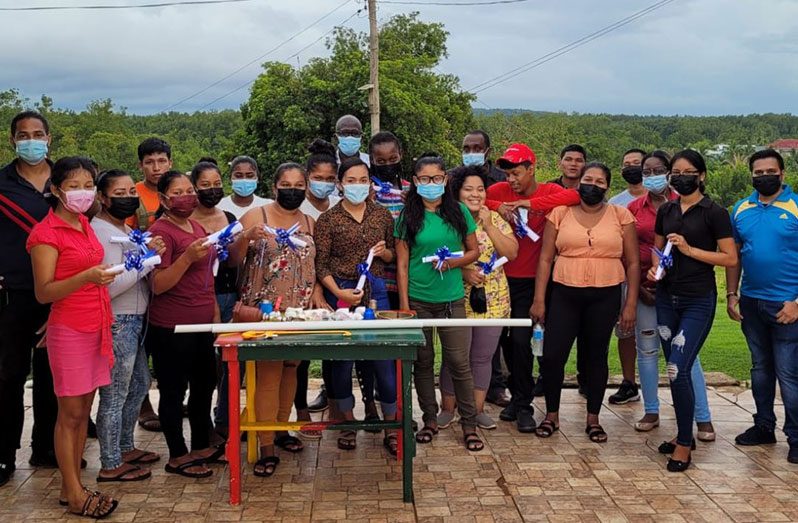EIGHTEEN Community Service Officers (CSOs) from Region One are now better equipped to operate and maintain water and sanitation facilities in their communities.
According to a release, this is as a result of a two-day training seminar facilitated by the Guyana Water Incorporated (GWI) in Mabaruma, Region One from November 19-20, funded by the United Nations Children’s Fund (UNICEF) and the United Nations Development Programme (UNDP).
The training included both theoretical and practical components and was done as a part of phase two of the Water, Sanitation & Hygiene (WASH) programme. Phase one was launched in hinterland communities in 2019.

The release noted that focus areas of the capacity-building training exercise were photovoltaic systems, the operation and maintenance of pumping systems, maintenance of water distribution systems, sampling and analysis of water parameters and the construction of basic sanitation systems.
The participants were from the villages of White Water, Kamwatta, Baramita, Arakaka, Falls Top, Canal Bank, Sebai and Koberimo.
Training in hand-washing and menstrual hygiene was also done with Venezuelan migrants in White Water.
WASH is an initiative aimed at improving sanitation, hygiene and access to potable water and is being rolled out among residents and Venezuelan migrants who have settled in villages in Regions One, Two and Seven.
Phase one of the programme saw a number of WASH interventions that included the drilling of a potable water well at Whitewater, Region One and the construction of rainwater harvesting facilities in several villages within the region, namely: Khan’s Hill, Imbetero, Smith Creek, Yarakita and Whitewater.

On the sanitation side, more than 30 Ventilated Improved Pit Latrines (VIPs) were constructed, while in the area of hygiene promotion, several sessions were held with the migrants and residents of the host communities. The programme also entailed the distribution of water purification units to Kurutuku, Region Seven, and the distribution of hygiene and food packages to Regions One, Two and Seven.
The success of phase one birthed further funding through a collaboration with the UNDP for the implementation of phase two.
This funding is geared towards providing greater access to sustainable potable water supply and safe sanitation, whilst strengthening capacity both with GWI and the hinterland communities for the operation and maintenance of the newly-established facilities, the release said.




.png)









